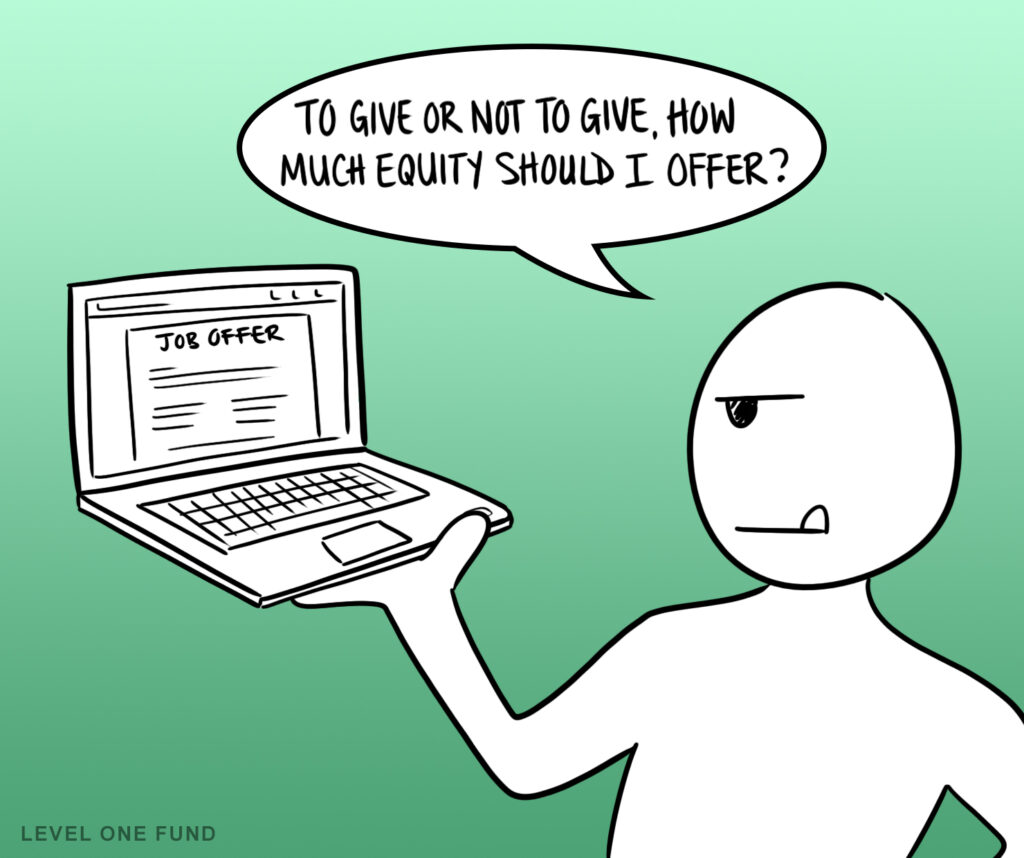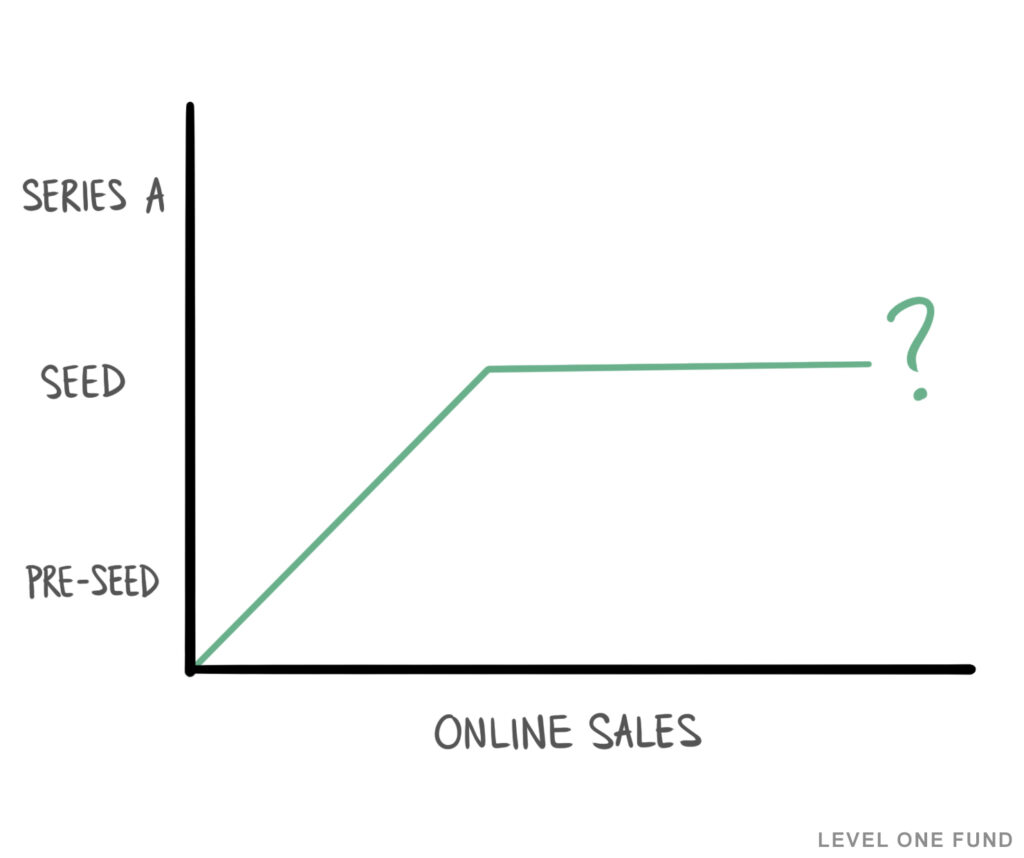An issue we’ve come across repeatedly with companies of all stages is a disconnect between having the perfect candidate for a critical role, and offering that candidate the right amount of equity.
The right amount of equity doesn’t always mean the minimum amount required for a candidate to accept the job, but an ownership stake that is sufficient enough to make the candidate feel like a true partner in the business. In cases where a candidate’s role will make or break a business, this could mean offering the candidate more than is necessary for accepting the job.
How do you know if a role will make or break your business? Why would a founder offer more equity than is necessary? Aren’t both sides supposed to extract as much as possible from each other before coming to an agreement?

Read on to find these answers and more in the hypothetical example of a company called Llamorama.
*****
Llamorama was the hottest consumer business on the block. Online sales of its stuffed llamas had been growing 20% month over month, and just one year ago it secured $1M in seed funding from a top consumer VC. Every time you looked at your phone there was a new push notification with another headline about the company’s meteoric rise from unknown startup to llama-phenom.
From the outside looking in everything seemed great. The company was moving llamas like hotcakes, but beneath that silky smooth exterior of alpaca fleece lurked a problem: plateauing online sales.
Half a year after closing its seed round, the founders noticed decelerating sales growth, but assumed it was just a blip on the radar. One quarter later, however, they were in full panic mode as growth had not only dropped to the single digits, but was almost flat. Several times a week they met with their sales director and tried to diagnose the problem, but couldn’t wrap their heads around what was causing this. Their sales director had singlehandedly grown the company from $0 in revenue to almost 7 digits.

The founders finally convened a board meeting to address this problem, and as soon as they explained what was going on one of their board members spoke up. This industry veteran had seen many businesses reach this impasse before, and the reason was usually the same: the head of sales had hit the ceiling, and no longer possessed a skillset sufficient enough to take growth to the next level. While Llamorama’s current director was able to growth hack the business to seed stage success, the founders would need someone with greater experience to take it beyond that.
After hearing this the founders went out and interviewed a flurry of new sales director candidates. Before long they came across the perfect one: a sales director who had just come on the market after his company was acquired. He joined his previous company around its Series A, and generated explosive online sales growth all the way through its eventual exit.
That weekend the founders put together an offer and sent it to the candidate. To their surprise, a few hours later the candidate declined the offer. As he put it, he knew exactly what to do to take Llamorama into the stratosphere, and without him the business would flatline. Simply put, he felt that a 2% equity stake did not reflect this value.
Bewildered, the founders consulted with an advisor on what to do. When the advisor suggested that they double the offer to 4%, they balked. After pouring years of their lives into this business, and after all the blood, sweat, and alpaca fur that went into it they couldn’t fathom diluting themselves like this. Offering this much would also force them to increase the total employee stock option pool, and on top of that they still had future rounds to raise that would further dilute their current 40% stakes.

After they went on and on about these concerns for a few minutes, the advisor raised his hand to hush them. “40% of zero is zero,” he said. “If you don’t hire this person fast, you may not have a next round.” The founders looked at each other and knew what to do.
Later that afternoon, they revised the offer and not only offered the candidate 5% equity, but even added a bump to his salary. Although this offer was higher than they had originally expected, they knew that without this person on the team their own equity stakes would become worthless.
After sending out this revised offer the founders walked over to their R&D lab to sample a top secret product that they planned to unveil the following month at their annual keynote event: a cold pressed llama milk that was both paleo and keto-friendly.
The founders hardly had time to taste this new product before one of their phones started vibrating. It was the candidate. Putting him on speakerphone, they were delighted to hear that the candidate had accepted the offer. Not only did he feel that the founders valued him, but he felt like a partner, and was deeply incentivized and determined to make this business one of the great consumer success stories of all time.
After finishing the call the founders raised their glasses of llama milk in a toast to a bright future of hockey stick growth and unbridled success.

*****
The great lesson of this story is found within the words of the company’s advisor: “40% of zero is zero.”
While the founders were hung up on a few percentage points of equity, they missed the bigger picture: without top talent filling the most crucial roles, the business would never reach its full potential, and may be stuck with tepid growth indefinitely, or worse. Although they could have gone back to the other candidates who were just good enough, this particular individual was world class, a true sales guru who outshone the others.
Although this candidate would have settled for 4% equity, the founders went a step further and offered him 5% because they realized that this would not only make him feel like a true partner in the business, but would incentivize him to work hard and channel his full potential.
While sufficiently incentivizing key players may mean offering more than is necessary to bring them on board, when applied in the right context it can make a significant if not life-saving difference in a company’s future.
Originally published in 2020